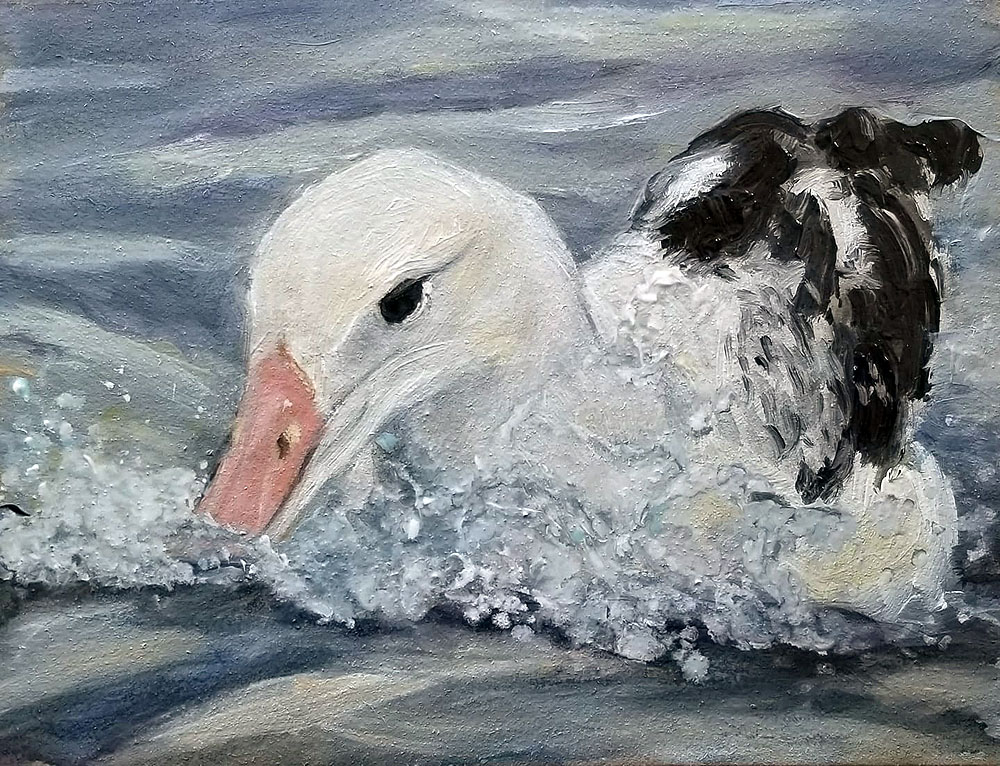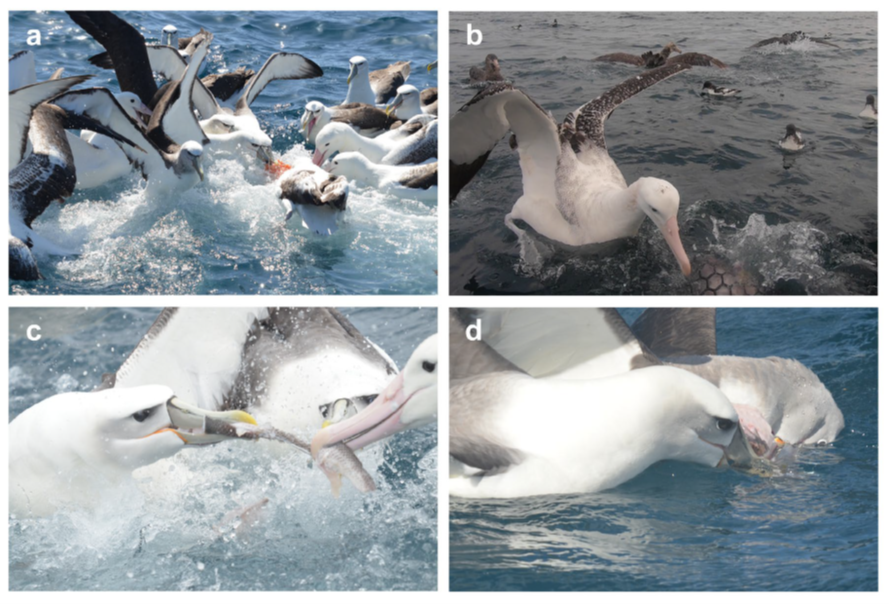
Southern Royal Albatross Diomedea epomophora by Pilan, from a photograph by Laurie Smaglick Johnson
Paul Martin (Department of Biology, Queen’s University, Kingston, Ontario, Canada) and James Briskie have published in the journal Notornis on dominance hierarchies among tubenoses fed from a tourist boat.
The paper’s abstract follows:
“Aggressive interactions among species competing for resources are common and usually asymmetric, leading to consistent dominance hierarchies. Here, we document aggressive interactions among six albatross and three petrel species off southern New Zealand, in response to supplemental food provided by ecotourism boats. For species with sufficient sampling, we found a consistent dominance hierarchy, with Diomedea antipodensis gibsoni > D. epomophora > Macronectes halli > Thalassarche cauta > T. salvini > T. bulleri > Daption capense. The heavier species was dominant in most species pairs. Dominant species monopolised the food provided by displacing subordinates. However, subordinate species appeared to gain access to some food through fast responses, greater manoeuvrability, and feeding on small pieces of food ignored by dominants. Similar congregations and interactions at natural food sources suggest that dominance hierarchies may play an important role in structuring the diverse seabird communities in the southern oceans.”

Albatrosses and petrels compete for fish discards behind ecotourism boats in southern New Zealand (from the publication)
With thanks to Roger Sharp, Birds New Zealand.
Reference:
Martin, P.R. & Briskie, J.V. 2021. Dominance interactions among New Zealand albatrosses and petrels at ecotourist boats. Notornis 68: 51-64.
John Cooper, ACAP Information Officer, 23 April 2021

 Español
Español  English
English  Français
Français